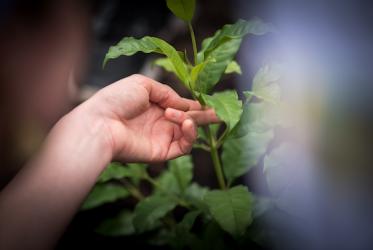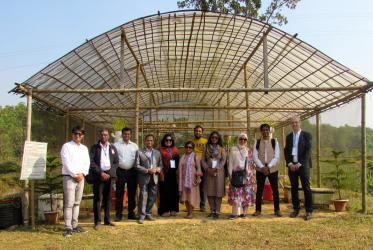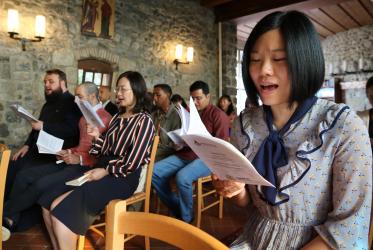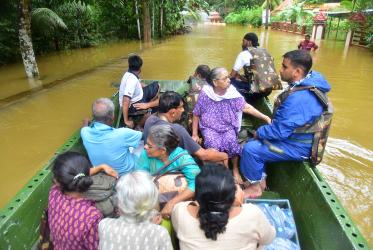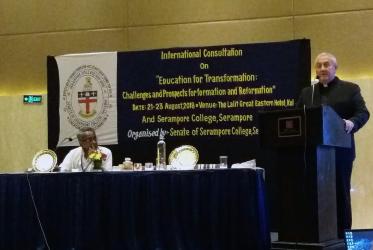Displaying 21 - 40 of 101
26 February 2020
CCIA meets in Brisbane with focus on Pacific regional priorities
19 February 2020
Church of South India eco-ministry featured on UNESCO website
17 February 2020
WCC relaunches Sarah Chakko Scholarship Fund
30 January 2020
Church response to Australian bushfires hinges on preparation
07 January 2020
New WCC “Eco Ambassadors” pledge to protect our ecology
06 January 2020
Eco-School promotes blue communities, green churches
19 November 2019
WCC Eco-School begins in Thailand
07 November 2019
Thursdays in Black: sharing support, transforming lives
21 February 2019
Workshop in Bangladesh links climate, economic justice
07 February 2019
Eager ecumenists embark on new missions
04 February 2019
All pilgrim routes lead to COP24
11 December 2018
WCC represented at International Sanitation Convention in India
18 October 2018
Paving the way for ecumenical studies, learning English in Bossey
24 September 2018
New students welcomed at WCC Bossey Ecumenical Institute
13 September 2018
